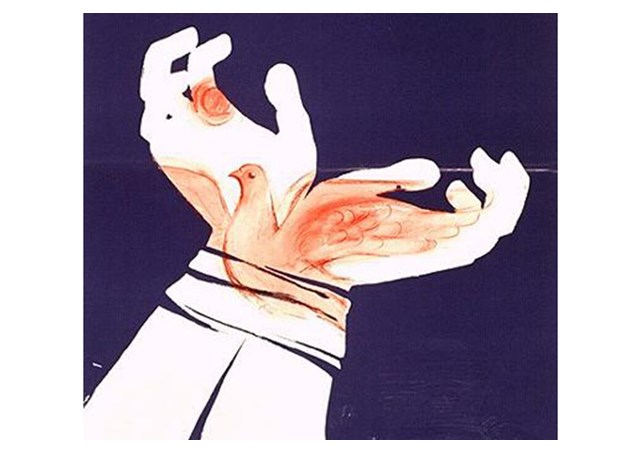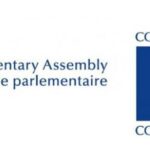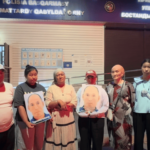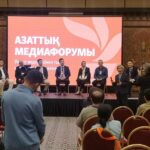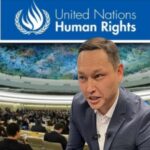European Union Advocacy Meetings, May 2015[1]
Positive steps the authorities have taken in recent years include the setting up of a National Preventive Mechanism (NPM) in 2013, which started visiting detention facilities across the country in March 2014, the abolition of the statute of limitations applicable to the offence of torture and the exclusion of torturers from prisoners amnesties in Kazakhstan’s new Criminal Code that came into force in January 2015. Legal safeguards pertaining to detainees in pre-trial detention were strengthened in the new Criminal Procedure Code (CPC) that also came into force in January 2015.
However, legislative measures have not always translated into practice and the NGO Coalition against Torture in Kazakhstan recorded between 350 and 400 complaints of torture and other forms of ill-treatment in Kazakhstan annually in 2013 and 2014. By early April 2015 the Coalition against Torture had registered 25 cases involving allegations of torture or other ill-treatment since the beginning of 2015. Some of these cases relate to several individuals claiming to have been tortured. In its November 2014 concluding observations the Committee against Torture pointed out that less than two per cent of torture complaints led to prosecutions.
This briefing focuses on three key areas that continue to be of concern to the human rights organizations issuing this briefing: 1) the authorities’ failure to ensure access of detainees to fundamental legal safeguards in all cases; 2) the lack of an independent investigation mechanism; and 3) the lack of legislation that would grant all torture victims reparations including compensation. At the end of the briefing we make three recommendations on how to tackle these key concerns that, if implemented, would significantly reduce incidents of torture and other forms of ill-treatment in the country.
Strengthen and fully implement legal safeguards
In November 2014, the Committee against Torture recommended Kazakhstan to “take effective measures to guarantee that all detained persons are afforded, by law and in practice, all fundamental legal safeguards against torture and ill-treatment from the very outset of deprivation of liberty” (Paragraph 12).
The new CPC of Kazakhstan that came into force in 2015 significantly strengthened legal safeguards in pre-trial detention including by clarifying that detainees must have access to key safeguards as soon as they are deprived of liberty. For example, it stipulates that family members should promptly be notified and detainees should have access to legal counsel immediately after they are deprived of liberty.
There are a number of remaining shortcomings in the new legislation that should be addressed to further strengthen legal safeguards. For example, Article 131, part 2 of the CPC provides for medical examinations following a written request by the detainee. Introducing routine medical examinations by independent doctors promptly after apprehension would provide a stronger safeguard against torture or other ill-treatment and would be in line with recommendations made by international human rights bodies.[1]
The UN Human Rights Committee and the UN Special Rapporteur on torture have pointed out that detainees should be brought before a judge no later than 48 hours after they are deprived of liberty.[2] Under the CPC of Kazakhstan remand hearings take place within 72 hours.
We are also concerned that the new CPC does not fully clarify how judges should treat evidence that was obtained in violation of legal safeguards pertaining to pre-trial detention.
Article 131, part 1 of the CPC obliges police “upon detention” to orally inform detainees of their rights. We believe this safeguard should be strengthened by additionally handing out an information sheet detailing the detainee’s rights.
Members of the National Preventive Mechanisms and member organizations of the Coalition against Torture in Kazakhstan reported that, despite the coming into force of the new CPC in January 2015, detainees do not always have access to legal safeguards enshrined in the Code and there continue to be cases of incommunicado detention. However, it is too soon to provide an overall assessment of the implementation of these recent legal changes.
When detaining Aydarbek Namazbaev in the town of Taldykorgan in the southeastern Almaty region on 11 March 2015 on accusations including bribery, police reportedly beat and prevented him from informing his relatives of his whereabouts. Police reportedly took him to an office in the local Department of Internal Affairs, where he was held all night for approximately ten hours. The officers reportedly threatened to place him in a cell with criminals who would rape him and with disrupting the careers of his son and wife unless he confessed to the crimes they accused him of. The officers did not register his detention. In the meantime his relatives tried to find him, but officials of the Ministry of Internal Affairs, the Financial Police, the Committee for National Security and the local investigation isolation facility told them that Aydarbek Namazbaev was not detained in their facilities as his name did not appear in their registry. On 12 March, he was placed in the local temporary detention facility. Eventually, through unofficial channels, his family was able to establish his whereabouts and hired a lawyer to replace the state-appointed lawyer Aydarbek Namazbaev had been provided with by the investigator. However, the new lawyer was not given access to the case documents for three days. While Aydarbek Namazbaev was held incommunicado police threatened that unless he confessed to the crime they accused him of they could “make your death look like suicide”. At the remand hearing on 27 March he was released on bail. With the support of Taldykorgan Human Rights Centre Aydarbek Namazbaev submitted a complaint about police abuse to the local prosecutor’s office.
The authorities recently introduced a programme requiring traffic police to wear miniature video cameras with voice recorders at all times while on duty to record interactions with drivers. We are calling on the authorities to broaden this programme to include obligatory videorecording of all interactions by police with civilians especially during apprehensions and transportation of detainees to police stations. We believe this would be a strong safeguard against unregistered detention.
Establish an independent investigation mechanism to end impunity
Those who lodge complaints are at risk of reprisals and detainees are often subjected to further violence. In those cases where victims or their relatives dare to complain their allegations are usually first routed to the Internal Security Department of the Ministry of the Interior, which generally dismisses them as unfounded. Criminal cases are opened only in a small number of cases.
In order to end impunity we urge the authorities – in line with the Committee against Torture’s November 2014 concluding observations – to “[e]stablish an effective, fully resourced, independent and accountable body that is able to carry out prompt, impartial, thorough and effective investigations, including preliminary investigations, into all allegations of torture and ill-treatment, ensuring that such investigations are never undertaken by personnel employed by the same ministry as the accused persons” (Paragraph 8(a)).
Provide reparation including compensation to torture victims
Civil courts in Kazakhstan routinely deny compensation claims in all torture cases where the perpetrators have not been brought to justice. To date the only exceptions are torture victims Alexander Gerasimov and Rasim Bayramov who were awarded compensation by Kostanay City Court in November 2013 and December 2014 respectively. In both cases the UN Committee against Torture decided that they be awarded with full and adequate reparation, including compensation and rehabilitation after they had applied to the Committee under its individual complaint procedure.
The rulings of Kostanay City Court are important milestones toward providing remedies to torture victims in Kazakhstan. We urge the authorities to build on these rulings by ensuring that there be clear provisions in domestic legislation on the right of torture victims to reparation, including fair and adequate compensation and rehabilitation for damages caused by torture, regardless of whether perpetrators of such acts have been brought to justice.
Recommendations:
Local and international organizations including United Nations human rights bodies and procedures have issued recommendations to the authorities of Kazakhstan in recent years in order to address ongoing torture and other ill-treatment in the country. We call on the authorities to implement all recommendations made by UN human rights institutions in order to end torture and other forms of ill-treatment in the country.
We urge representatives of the European Union to place particular emphasis on the following three recommendations in their interactions with the authorities and parliamentarians of Kazakhstan. We believe that by implementing these recommendations as a matter of priority Kazakhstan would make significant progress toward ending torture.
- Strenghten legal safeguards and ensure in practice that individuals have access to all legal safeguards enshrined in the Criminal Procedure Code of Kazakhstan. Equip police with miniature video cameras and voice recorders and oblige them to wear them at all times when on duty to record all interactions with civilians, especially during apprehensions and transportation of detainees to police stations.
- Introduce legislation to create and fund an independent body endowed with sufficient authority and competence to conduct prompt, thorough and independent investigations into allegations of torture or other ill-treatment. This would be in line with Paragraph 8(a) of the Committee against Torture’s concluding observations.
- Ensure that there are clear provisions in domestic legislation on the right of torture victims to reparation, including fair and adequate compensation and rehabilitation for damages caused by torture, regardless of whether perpetrators of such acts have been brought to justice. This would be in line with Paragraph 22(a) of the Committee against Torture’s concluding observations.
[1] For example, refer to Paragraph 8 (e) of the Committee against Torture’s Concluding Observations issued to Tajikistan in January 2013 (http://tbinternet.ohchr.org/_layouts/treatybodyexternal/Download.aspx?symbolno=CAT%2fC%2fTJK%2fCO%2f2&Lang=en).
[2] Refer to the August 2013 Concluding observations of the Human Rights Committee on the second periodic report of Tajikistan (http://tbinternet.ohchr.org/_layouts/treatybodyexternal/Download.aspx?symbolno=CCPR%2fC%2fTJK%2fCO%2f2&Lang=en) and the February 2015 Follow up report of the Special Rapporteur on torture issued after his mission to Tajikistan (http://www.refworld.org/docid/550826644.html).


